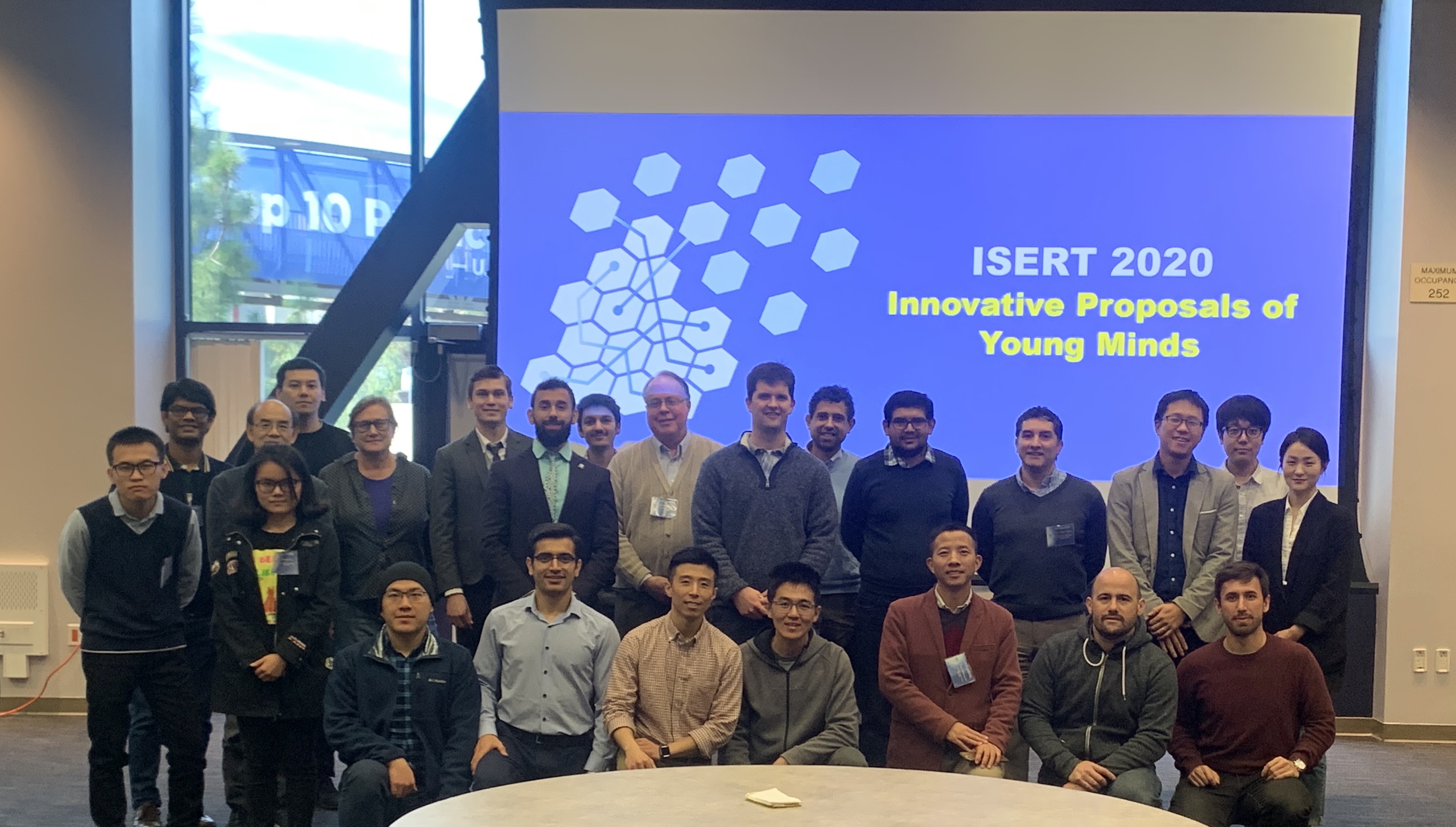News | UCI Hosted the Irvine Symposium on Emerging Research in Transportation 2020
Stop the VideoNews

UCI Hosted the Irvine Symposium on Emerging Research in Transportation 2020
Thursday, July 23, 2020
by Adylbek Abdykalikov, USC, IPPAM 2020
From January 17 through 18, 2020, the University of California, Irvine (UCI) and sponsor Pacific Southwest Region University Transportation Center (PSR) hosted the Third Annual Irvine Symposium on Emerging Research in Transportation (ISERT 2020). Each year, this Symposium brings together academics, researchers, graduate students, and industry professionals in transportation to exchange ideas on emerging research and applications in transportation. ISERT spotlights new research ideas that may still be under development or that involve preliminary results. This is the first in a series of articles detailing the Symposium itself as well as individual presenters.
Over the span of two days, ISERT 2020 participants heard from nearly 20 presenters in five sessions covering a variety of transportation specializations. Presentations addressed both international and domestic transportation issues, with speakers offering unique perspectives and from China and Australia to Texas and Illinois. The major themes of ISERT 2020 centered on big data and technical research, including data analytics and computational schemes in transportation; connected/autonomous/shared mobility systems in transportation; advances in demand and activity system modeling; advances in modeling and analysis for sustainability; modeling and analysis of transportation system control; advances in technology and user-centric applications; and transit, freight, land-use, and mobility planning.
Director of UCI’s Institute of Transportation Studies and Professor Stephen Ritchie kicked off the Symposium by welcoming participants, recognizing transportation’s prominence in research, and noting the important role of both researchers and young minds in creating and disseminating knowledge that leads to improvements for the greater good in all aspects of transportation.

Participants and speakers pose for a celebratory photo.
During the first session, moderated by Professor R. Jayakrishan of UCI, speakers from UCI, the University of Texas at Arlington, and Canada’s McMaster University presented their work on the development of connected vehicles, the role of heavy-duty zero-emission vehicles, optimal location issues for speed limit application areas, and barriers and opportunities of transportation-disadvantaged populations.
The second session was moderated by Professor Mike McNally, also of UCI, and followed the same format as the first. Four more well-qualified researchers shared their work on relevant transportation issues like implementing autonomous and shared mobility systems, dynamic shuttle dispatching, and alternative fuel adoption in heavy-duty vehicle fleets in California. Guest speaker and Professor from Shanghai Maritime University, Ying'en Ge, spoke on transport operations and management within a port cluster.
Another international guest presented his research during the third session -- Professor Gunwoo Lee from Chung-Ang University, South Korea, showcased his work on fuel consumption models of container ships in Korea. Professor Linda Hill employed a more qualitative approach with her presentation on “Public Health Strategies for Transportation Safety.” Other speakers introduced projects on dual process models and powertrain optimization.
After the third session, ISERT attendees enjoyed the opportunity to stretch their legs and take a look at posters showcasing the research of seven UCI graduate students, including some emerging researchers who also presented at the Symposium. The emerging scholars knowledgeably shared their research methodology and preliminary results of their projects with conference participants. The poster session covered various transportation issues, including EV management, the improvement of urban multi-modal transport systems, and efficient usage of transportation supply.

Symposium attendees study a researcher's project poster up close during the poster session.
On the second day of the program, the Symposium continued with its fourth and fifth sessions. ISERT participants listened to, learned about, and exchanged ideas on the development of automated vehicles and traffic data analysis. Professor Nestor Garza, of California State University, Dominguez Hills, presented his work on the “Radical Uncertainty and the Effect of Transport Infrastructure on Land Prices”. During the fifth session, Professor Shengchuan Zhao, of the Dalian University of Technology, performed “An Empirical Study on Public Acceptance towards Autonomous Vehicles in China.” ISERT is a valuable opportunity for young researchers and industry professionals alike to exchange ideas on modern transportation-related challenges. The Symposium allows those interested in transportation to gain a better sense of the latest research developments. We wish all presenters the best of luck in going on to polish and expand their research. You can view the full list of presenters and topics here.
About the Author:
Adylbek Abdykalikov is a recent graduate of the Masters of International Public Policy and Management Program at USC Price. He has working experience in various positions at the Ministries of Transport and Communication and Investment and Development of Kazakhstan and was in charge of Transportation and Civil Aviation policy development and implementation. He served as the lead writer to METRANS Newsletter and lead student event coordinator for METRANS and PSR.
News Archive
- December (1)
- November (6)
- October (4)
- September (2)
- August (3)
- July (4)
- June (3)
- May (7)
- April (8)
- March (11)
- February (8)
- January (7)
- December (7)
- November (8)
- October (11)
- September (11)
- August (4)
- July (10)
- June (9)
- May (2)
- April (12)
- March (8)
- February (7)
- January (11)
- December (11)
- November (5)
- October (16)
- September (7)
- August (5)
- July (13)
- June (5)
- May (5)
- April (7)
- March (5)
- February (3)
- January (4)
- December (4)
- November (5)
- October (5)
- September (4)
- August (4)
- July (6)
- June (8)
- May (4)
- April (6)
- March (6)
- February (7)
- January (7)
- December (8)
- November (8)
- October (8)
- September (15)
- August (5)
- July (6)
- June (7)
- May (5)
- April (8)
- March (7)
- February (10)
- January (12)















